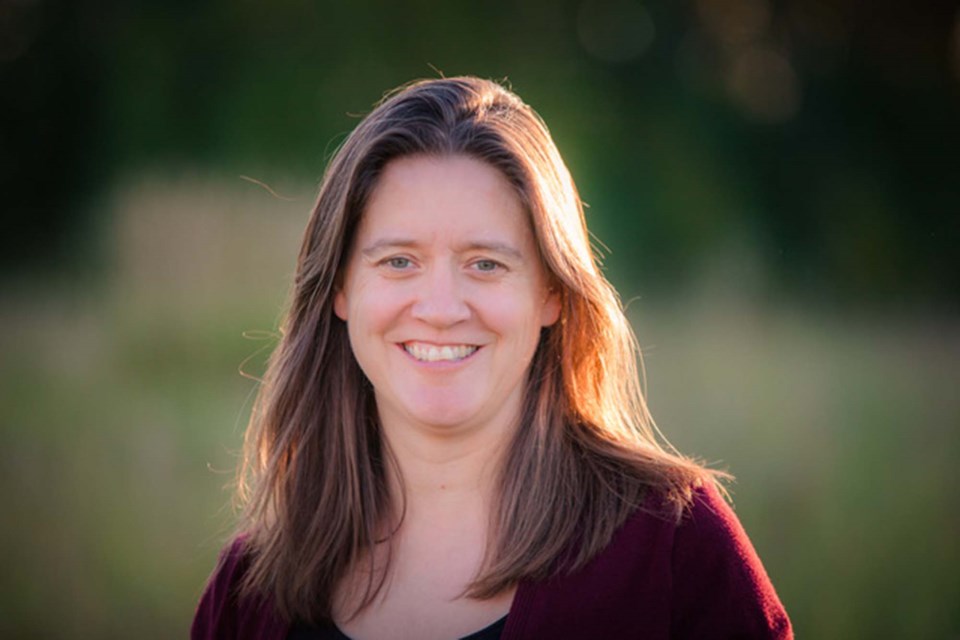There has been a shift in attitudes towards sexual assault in the 25 years Krista Osborne has been working as a counselor with teens.
Teens are more willing to come forward now, but there is still a lot of work to be done when it comes to institutions and the knowledge they carry, she said.
“I think because our society talks more about sexual violence and has really done some pushing in general around victim-blaming and how we need to believe victims of violence and not question them, I do see a lot more people coming forward and telling their stories about what happened to them,” Osborne said.
On March 30, the Ministry of Justice and Solicitor General and the Ministry of Culture and Status of Women tabled legislation that would require provincial court judge applicants to complete sexual assault law and social context issues education to be eligible for appointment.
Osborne thinks judges being trained and having more information around sexual assault is “super crucial.”
“There’s a sensitivity about victims coming forward, that the system hasn’t always been inviting or safe for victims of crime, especially around sexual assault,” Osborne said.
Osborne has never gone to court on behalf of her clients, but she has had a handful of clients who have been assaulted. Some have chosen to speak up and go to police or the school system about the assault.
“Other students have not because of some of the stuff that happens in the judicial system,” she said.
Osborne said there have been instances in the media where judges have said wildly inappropriate things to victims in terms of blaming them.
“A lot of people who have been assaulted in various forms are vulnerable to begin with,” she said.
Lise Gotell is an assistant professor of women’s studies at the University of Alberta in Edmonton and an expert in sexual consent law.
She said it does appear judges do need additional education on sexual assault law, not only to inform them of the gender dynamics underlying sexual violence and rape myths, but also because it is a complicated area of law.
Gotell said only the tiniest minority of cases ever go to trial.
“That is because it’s still the case that … survivors distrust the criminal justice system,” she said.
Data from Statistics Canada shows only five per cent of survivors who experience sexual assault report to police, said Gotell, and of those, in only one in 10 is there is a finding of criminal responsibility.
When complainants go through the justice system, the experience is gruelling, Gotell continued.
Gotell worries this bill is largely symbolic, “because the government has done virtually nothing to address the very big problem and pervasive problem of sexual violence in Alberta. We have some of the worst rates in the country and there's been no proactive strategy,” she said.
Gotell said she also doesn’t think the province has appointed a single provincial court judge since the UCP came to power.
“Even if [the province] were appointing judges [it] wouldn't appoint more than 10 or 20 judges in the next year. Having 10 or 20 judges who've taken a three- or four-day course from the National Judicial Institute is not going to change the experience of complainants in sexual assault trials in this province.
“You need it more like a deeper and more comprehensive set of reforms if you actually want to change things,” she said.
Diane Carter, acting spokesperson for the Justice and Solicitor General, said in an email, since May 1, 2019, there have been 16 new provincial court judges appointed.
No final decisions about whether or not more judges will be appointed have been made, said Carter, but there are a number of vacancies to be filled in the near future.
Carter said the bill is not symbolic.
“Bill 14 will ensure that only candidates who have completed, or have committed to complete, education in sexual assault law and social context issues, are considered for judicial appointments. This will ensure that victims of sexual violence are not victimized during the trial process,” Carter said.
Overall, judges are only a small piece of the puzzle, and Gotell thinks we also need well-trained Crown prosecutors.
“I say [Bill 14] would really provide a false sense of reassurance if it has any impact at all,” she said.
Osborne said a big issue she sees with regard to how sexual assault is handled is within the school system.
“Often, I've had girls come forward in the school system, and be told that there's nothing they can do even though the boy would be in her class, or their lockers are right beside each other, because there's been no charge,” she said.
Another issue is that it takes years to go through the process.
“I've had some kids that have been in junior high when things have happened, and then they're in university by the time something gets resolved,” she said.
The change Osborne would like to see is policing being more accessible in the country in a meaningful way.
“I think our school systems have a way of placating victims, right? Like we'll have a school counselor. We'll have someone who is very kind-hearted and well-meaning, but they're designed to make the victims feel OK with a perpetrator in their school."
Most importantly, Osborne would like to see better health and consent education in the school system, which is something Gotell agrees with.
“One thing that we can do is we can have better sex education that really teaches kids what boundaries mean and respecting other people with those boundaries and give them age-appropriate information about consent, beginning in elementary school … in Canadian law it's only yes means yes.”
If passed, Bill 14 will take effect upon proclamation.




